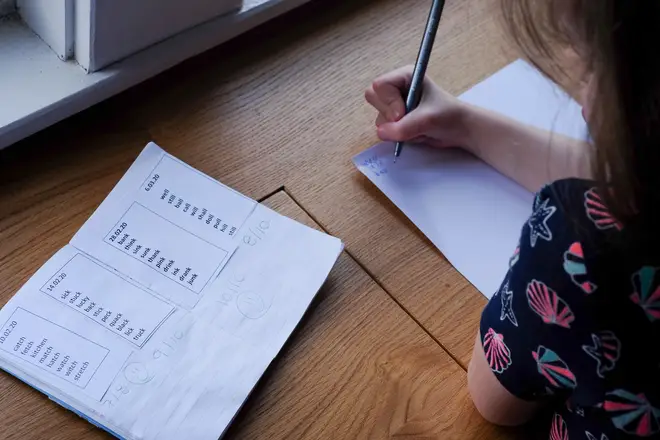
Daniel Barnett 9pm - 10pm
30 July 2020, 00:19

The number of hours worked in Britain during lockdown plummeted by 40 per cent, with mothers more likely to have sacrificed their work to carry out home-schooling and childcare tasks, research suggests.
UCL's Centre for Longitudinal Studies (CLS) found mothers with younger children at home were significantly more likely to have stopped work than fathers.
Families' finances will become "very precarious" if employment does not rebound when the Government's relief schemes end over the upcoming months, the experts warned.
The research, based on a survey of more than 18,000 people in May, found working rates were slashed, with hours among those aged 30 dropping from an average of 34 to 22, and from 52 to 10 for 19-year-olds.
The study found that among parents of school-aged children, 58% reported doing some home-schooling on a typical weekday, with 64% of mothers and 49% of fathers.

Among parents of primary school children, mothers were spending an average of five hours per day on home schooling, while fathers spent two hours, according to the research.
Mothers were also spending nearly three and a half hours on developmental activities with primary school-aged children on a typical day, compared with just under two hours for fathers.
Nurseries, schools and colleges across England closed their doors to all pupils in March, apart from the children of key workers, meaning some pupils will have been out of the classroom for nearly six months by September.
The research also found that better educated parents and those who stopped working were more likely to spend time on home-schooling.

Nick Ferrari's message for companies keeping employees working from home
Nearly two in three (63%) graduate parents home-schooled their primary school-aged children, compared with 49% with lower levels of education.
Co-author Professor Emla Fitzsimons, from the UCL Institute of Education, said: "Many mothers who have put their careers on hold to provide educational support for their children will need to adjust again once schools reopen and the furlough scheme tapers off.
"And with educational inequalities between advantaged and disadvantaged children potentially growing during this period, policymakers and practitioners will have to be vigilant to ensure that those who have suffered the most learning losses are well supported when schools return."

Shielding caller relieved vulnerable people can return to work
The study also found that across all age groups, nearly 30% of people reported being financially worse off since the start of the pandemic.
Among men in their late teens who had been working, 62% stopped work completely in the lockdown, compared with 44% of those in their early 60s and 30% of men aged 50.
The changes to financial circumstances appear to have "widened inequality", the report said.
Co-author Professor Francis Green said: "The worst effects have been avoided for many families by the Government's furlough scheme, and some have saved on commuting and leisure expenses.
"But those who were struggling before the pandemic were most likely to have come into greater difficulties. With relief schemes being tapered off in August and September, the future for families' finances is about to become very precarious."